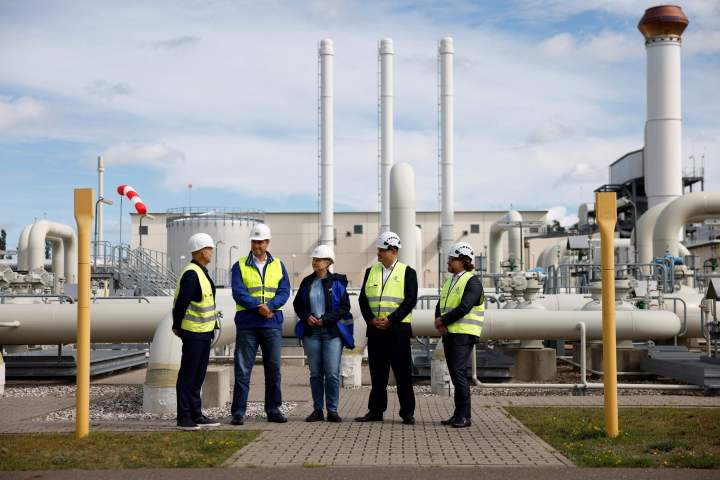
When war in Ukraine threatened its energy security, Germany weaned itself off Russian gas
When war in Ukraine threatened its energy security, Germany weaned itself off Russian gas

Russia’s invasion of Ukraine profoundly reshaped the global markets for oil and gas.
Few countries – aside from Ukraine itself – have felt the impact of the war on energy supplies as much as Germany.
Before the war, Europe’s largest economy got as much as half of its supply of natural gas by pipeline from Russia – and used it to generate electricity and heat homes. As sanctions took hold, Russia cut the supply to Germany. And then somebody blew up one of the gas pipelines that had carried it.
Just after last year’s invasion, Moritz Kuhn of the University of Bonn and a team of other economists published a paper called “What If?” — as in, what if Germany stopped getting energy from Russia?
They argued the effects would be substantial but manageable. “That was highly, highly controversial,” Kuhn said. Those imports stopped last summer, and Germany’s economy has survived.
“The general population but also policymakers are all pretty surprised about how well Germany adapted to the new situation,” Kuhn said.
Conservation has helped; Germany used almost 15% less natural gas last year. When we spoke recently, the heat in Kuhn’s office was off.
“It was off like the entire … more or less … entire winter,” he said.
The weather also cooperated. A warm winter has also let Germany “stock up” on natural gas, and in the meantime, allowed the country to remake how it sources gas – without Russia.
Julia Friedlander, CEO of the nonprofit Atlantik-Brücke, said the war supercharged infrastructure plans that would have taken years.
“Push came to shove, it took them months,” Friedlander said. “So it shows that in a crisis situation, things can move really fast.”
With gas pipelines from Russia out of commission, Germany started installing floating terminals that allow it to import liquified natural gas (LNG) by ship.
“In infrastructure language, it was lightning speed,” Friedlander said.
Much of that LNG now comes from the U.S., which has become Europe’s largest source of LNG.
The gas didn’t come cheap as prices surged last year, said Anna Mikulska, a fellow at Rice University’s Baker Institute. “Europe was able to outbid pretty much everybody else,” she said
According to Mikulska, that’s had consequences for the energy security of other countries.
“A lot of LNG that would have otherwise gone to Asia, countries like Pakistan, like Vietnam, like Bangladesh, or India ended up in Europe,” she said.
Climate activists in Germany haven’t been happy about this energy transition — natural gas, after all, is a fossil fuel.
The use of another – coal – also jumped by 5% last year. Nuclear plants slated for retirement are still online, for now.
Notre Dame economist Rudi Bachmann wonders whether Germany’s crisis mentality will last.
“Can they learn to sort of move this tempo forward with, with other major public infrastructure projects like wind parks,” he said.
Germany is aiming to be carbon neutral by 2045.
There’s a lot happening in the world. Through it all, Marketplace is here for you.
You rely on Marketplace to break down the world’s events and tell you how it affects you in a fact-based, approachable way. We rely on your financial support to keep making that possible.
Your donation today powers the independent journalism that you rely on. For just $5/month, you can help sustain Marketplace so we can keep reporting on the things that matter to you.


















